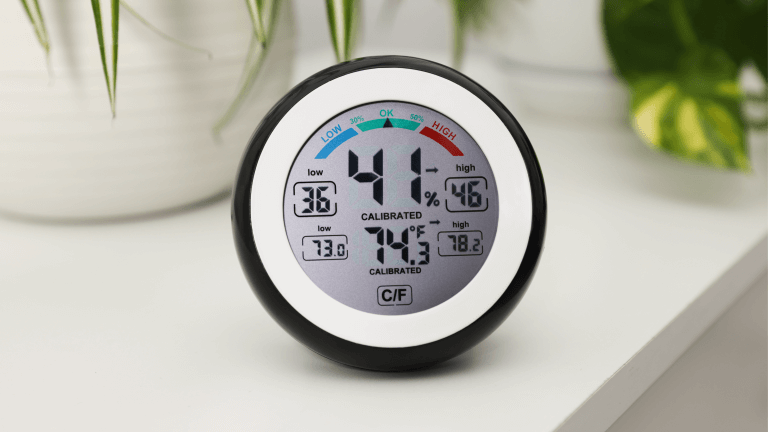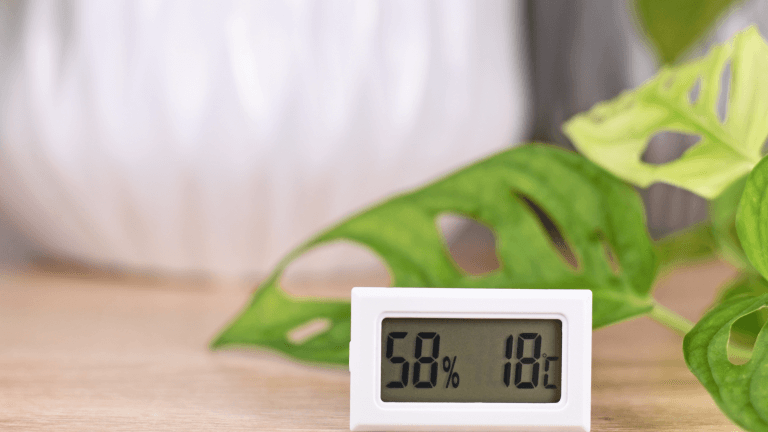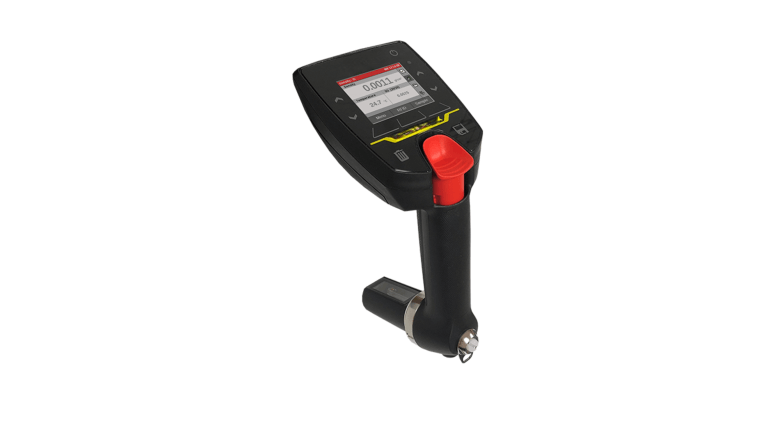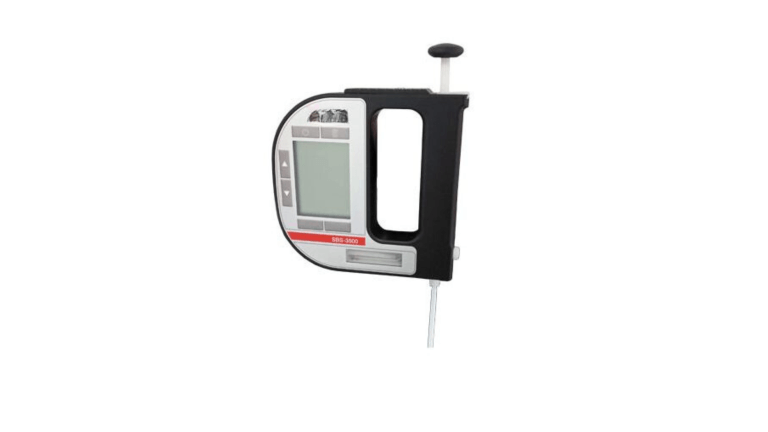Hygrometer Applications: From Home to Industry, Where Hygrometers are Used
A hygrometer is an instrument used to measure the amount of moisture or water vapor in the air, commonly known as humidity. Hygrometers are vital tools for monitoring humidity levels, and they have various applications across many industries and households.
Hygrometers enable precise measurement and regulation of humidity, ensuring optimal comfort in homes, controlling conditions for manufacturing and scientific processes, and supporting meteorological research and forecasting. They play critical roles in healthcare facilities, food processing, construction, agriculture, and consumer electronics.
This versatile instrument is essential for health, safety, product quality, energy efficiency, and any scenario where accurate humidity data is required. Whether integrated into HVAC systems or utilized as handheld devices, hygrometers provide the foundational data point to inform decisions around moisture and atmospheric conditions. Hygrometers are crucial in monitoring humidity across sectors as diverse as our modern world.
Hygrometer Applications in the Home
Optimal Indoor Humidity Levels:
Maintaining balanced humidity levels indoors is vital for health and comfort and preventing property damage. The ideal indoor humidity range is between 30% and 50%. Too much moisture enables allergens like dust mites, mold growth, and musty odors. Arid air can contribute to respiratory issues, dry skin, and static electricity. Achieving this optimal range supports overall well-being.
Hygrometer Uses in the Home
Monitoring the main living areas of your home with a hygrometer gives you a baseline for the overall humidity. Placing hygrometers in bedrooms allows you to optimize these personal spaces for comfortable sleep.
Checking humidity in basements, crawlspaces, and attics is vital for preventing moisture buildup, eventually leading to structural damage, wood rot, and mold. Hygrometers are your early detection system.
Home hygrometers are also critical for maintaining specialized environments, such as humidors for cigar/tobacco storage, wine cellars, and rooms for musical instrument storage. Precision humidity control protects these valuable collections.
Choosing the Right Hygrometer for Home Use
The right hygrometer depends on your needs and preferences. Digital options provide high accuracy but require batteries or power supply. Analog (dial) hygrometers have a vintage aesthetic but lower precision. WIFI-enabled and innovative home-integrated models sync seamlessly with climate control systems.
Essential features include accuracy within +/-5% humidity, relevant operating ranges based on your climate, long battery life for wireless models, and data logging capabilities to track trends over time.
Proper placement is also essential. Follow guidelines to avoid direct sunlight, heat sources, exterior walls, and more. Periodic calibration checks using the salt test method can ensure ongoing reliability. You’ll get dependable humidity readings with the right hygrometer in the optimal spot.
Industrial and Commercial Hygrometer Applications
Manufacturing and Production
Humidity control is paramount for worker safety, product quality, and process consistency in many manufacturing environments. Hygrometers are vital in cleanrooms, laboratories, and specialized production areas.
Critical cleanroom applications include monitoring humidity to prevent static discharge and contamination during semiconductor fabrication. Accurate measurements support dehumidification and vapor regulation for aerospace, pharmaceutical, and electronics manufacturing.
Hygrometers assist in monitoring HVAC performance, dehydration processes, and climate conditions within industrial dryers and ovens. Maintaining proper humidity optimizes efficiency and prevents shrinkage, cracking, and brittleness.
From paints and adhesives to pharmaceuticals, hygrometers enable quality control protocols and product testing under precise moisture specifications. They provide the data to validate that the materials meet performance standards.

Agriculture and Food Processing
In agriculture, monitoring greenhouse humidity creates ideal conditions for growth and yields. Barn facilities also require safe, healthy humidity ranges for livestock. And hygrometers are indispensable for regulating crop storage centers to prevent spoilage and rot.
Within the food industry, hygrometers help manage interior environments throughout the supply chain – from initial processing to retail displays. Properly controlling humidity at every stage extends shelf life and maintains optimal quality of fresh and packaged foods.
Hygrometers also factor into quality testing and grading for fruits, vegetables, grains, meats, and other commodities. Meeting specific moisture content standards impacts everything from flavor and texture to market pricing.
Utilities and Construction
Construction companies leverage hygrometers to monitor concrete curing and masonry, verify the effectiveness of waterproofing, and detect leaks or moisture damage. Precise humidity data ensures compliant processes and quality installs.
Utility providers depend on hygrometers to optimize HVAC systems, detect leaks, and validate the efficient operation of climate control systems across commercial and public facilities. Hygrometers support strategic energy management and preventative maintenance for mission-critical infrastructure.
Hygrometers also greatly assist with new home commissioning. Monitoring humidity during every build phase identifies potential issues before severe damage occurs. Incorporating humidity sensors into innovative building systems provides ongoing insights for facilities management.
Meteorological and Research Applications
Weather Forecasting Hygrometers are integral components within weather stations and radar systems worldwide. They provide precise humidity data critical for barometric pressure calculations and precipitation forecasting models. Pilots and aviation crews rely on hygrometer readings to detect dangerous icing conditions along flight paths.
Environmental Monitoring Environmental scientists utilize hygrometers to study air quality, pollution levels, and other atmospheric conditions. Real-time Monitoring allows the detection of increased humidity caused by phenomena like volcanic eruptions, dust storms, or human activity. This data gives insights into environmental changes over time.

Hygrometers also play a crucial role in climate change research and modeling. By tracking global humidity fluctuations over extended periods, researchers can analyze trends and better understand planetary weather systems and water cycles, contributing to more accurate climate projections.
Laboratory and Materials Science Precise humidity control is essential for many laboratory testing chambers and experiments. Hygrometers enable researchers to monitor and adjust atmospheric conditions to reflect real-world environments or isolate specific factors for robust analysis.
This capability aids studies into corrosion resistance, dehumidification processes, vapor transmission rates, and the identification of new materials that react to moisture. Ongoing innovation in hygrometer technology empowers further breakthroughs.
Hygrometers support materials science experiments involving everything from concrete and wood to electronics, fabrics, and coatings. Examining how humidity affects material properties at a molecular level opens new doors for engineering problem-solving and product development.
Healthcare and Medical Applications
Hospital and Healthcare Facilities
Hygrometers are essential in infection control protocols within hospitals and healthcare environments. Properly regulating humidity levels inhibits bacterial growth and prevents airborne pathogens. Surgical centers, in particular, adhere to strict humidity guidelines to maintain sterility.
Hygrometers also manage medication storage conditions, lab samples, and medical equipment. Sensitive supplies require controlled moisture levels to preserve integrity and shelf life, and humidity monitoring ensures safety and compliance standards.
Medical Research For clinical labs and biomedical research, hygrometers support exacting environmental conditions for incubation chambers, sample preservation, and study of humidity-sensitive materials. Obtaining repeatable results depends on precise atmospheric controls.
From tissue engineering to drug discovery, hygrometers enable experiments to be conducted under carefully calibrated conditions. They facilitate insights into new therapies, treatments, diseases, and biological mechanisms.
Medical Devices
Respiratory therapy equipment and air filtration systems require specific humidity levels for proper functionality and patient comfort. Hygrometers are essential for calibrating and monitoring these devices.
Humidity control in ambulances and other transport vehicles also improves patient outcomes. Hygrometers allow paramedics to maintain ideal moisture levels regardless of ambient conditions.
As medical technology evolves, wearable and implantable devices will likely incorporate hygrometer sensors. Continuous Monitoring has the potential to optimize treatments, alert patients and providers to abnormalities, and uncover new data points for personalized care.
Conclusion
This paper has explored hygrometers’ expansive and critical applications in households, manufacturing, agriculture, environmental research, meteorology, healthcare, and more. From monitoring humidity for home comfort to ensuring quality control in cleanrooms and supporting biomedical discoveries, hygrometers provide vital data for decision-making.
The latest hygrometer innovations enhance measurement accuracy to within 1% humidity, wireless connectivity, automated data logging capabilities, and integration with intelligent systems. As sensors and networks evolve, hygrometers will continue to be indispensable tools for monitoring and refining environments.
Properly selecting, placing, and calibrating hygrometers is essential for obtaining meaningful, actionable humidity data. Following manufacturer guidelines and utilizing the latest hygrometer models boosts reliability.
Hygrometers are essential for safety, efficiency, and successful outcomes in countless scenarios, whether preserving family heirlooms, preventing mold and moisture damage, optimizing agricultural yields, enabling scientific breakthroughs, or protecting lives with medical technology.
This paper has demonstrated the immense value hygrometers bring by providing the foundational measurements to control humidity levels. This versatile instrument continues expanding our capabilities across industries, research fields, and homes. The ongoing development of hygrometer technology will unlock new frontiers in understanding and mastering atmospheric conditions.






